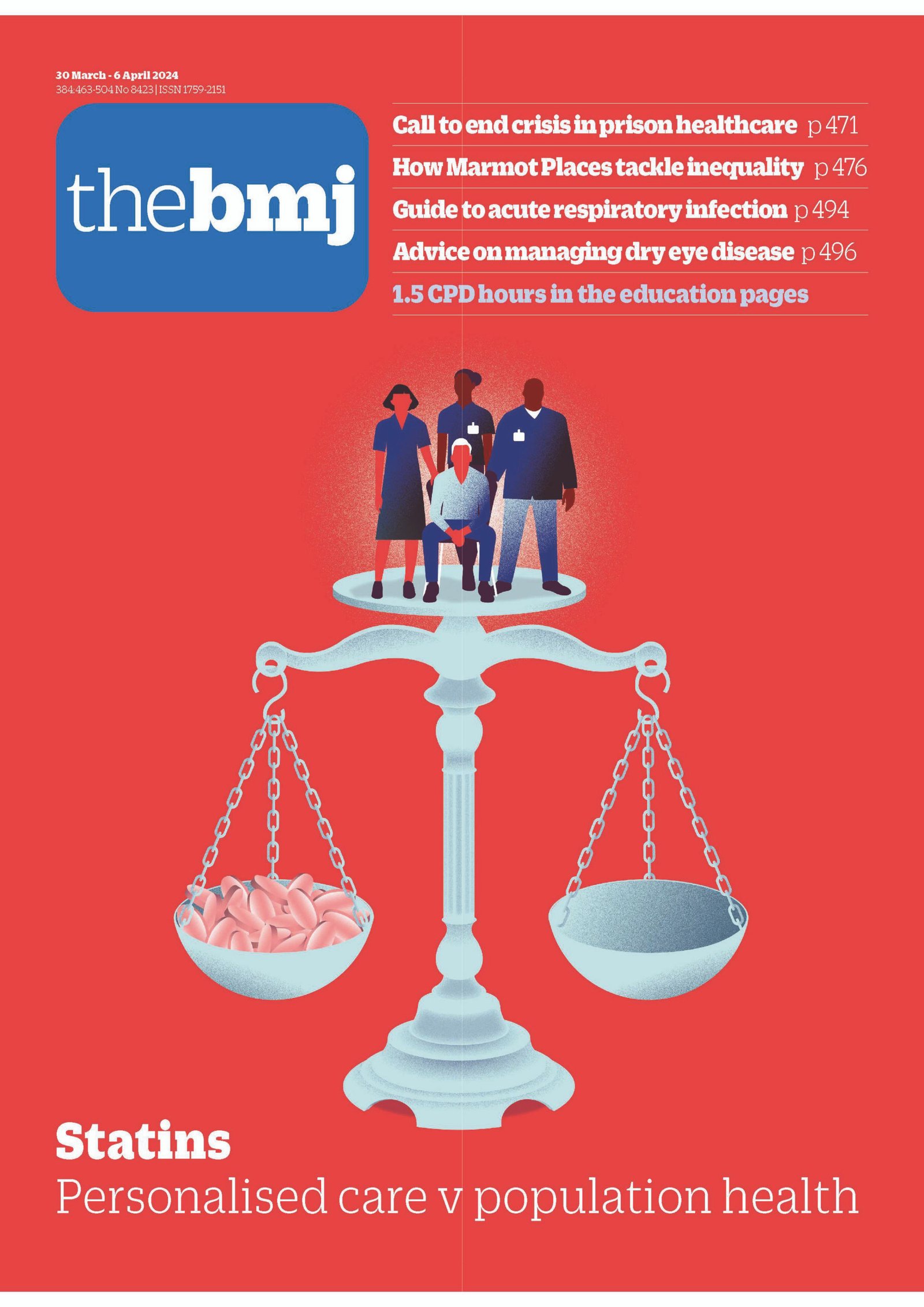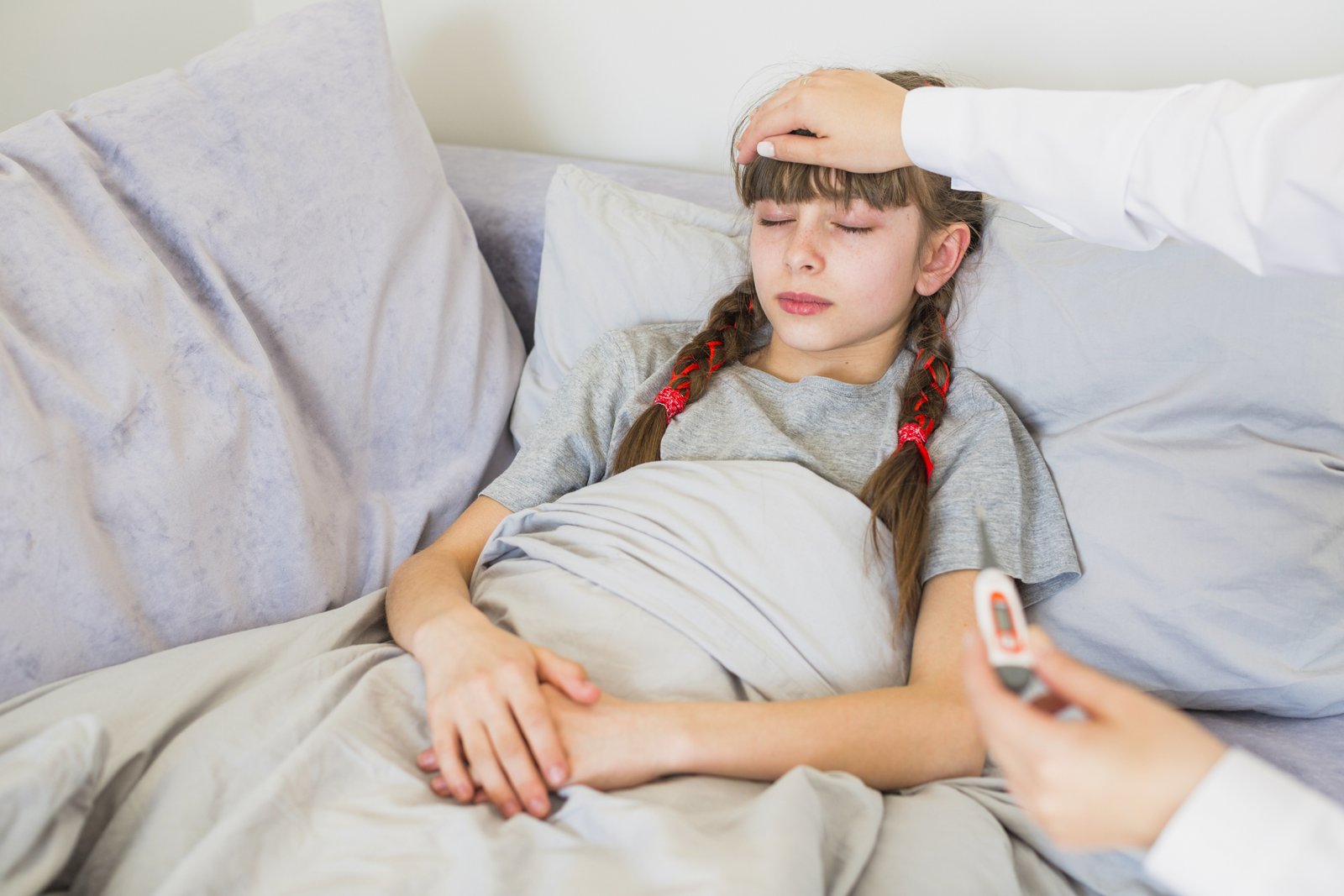Clinical guidelines used widely around the world to treat children and adolescents who raise issues about their gender were developed in breach of international standards on guideline development, a review set up by NHS England has concluded.1
The review, chaired by Hilary Cass, past president of the Royal College of Paediatrics and Child Health, calls for far reaching changes to the way children and adolescents with gender dysphoria and gender incongruence are treated. In an interim report in 2022 it recommended that these young people be brought within the mainstream NHS and treated by multidisciplinary teams that would look at them holistically, providing psychosocial interventions where needed.2

The review commissioned the University of York to research international practice and guidelines in the field. Cass noted, “The World Professional Association of Transgender Health (WPATH) has been highly influential in directing international practice, although its guidelines were found by the University of York’s appraisal to lack developmental rigour and transparency.”3
In its final report, published this week, Cass’s review pointed out that although most of the guidelines described insufficient evidence about the risks and benefits of medical treatment “many then went on to cite this same evidence to recommend medical treatment.”
The research carried out by York University, published in the Archives of Disease in Childhood, found that the evidence on the use of puberty blockers and hormones in young people with gender related distress was wholly inadequate, making it impossible to gauge their effectiveness or their effects on mental and physical health.4567 “No conclusions can be drawn about the impact on gender dysphoria, mental and psychosocial health, or cognitive development,” the research concluded.
Similarly, evidence on key outcomes, such as body satisfaction, psychosocial and cognitive outcomes, fertility, bone health, and cardiometabolic effects, was lacking or inconsistent. The research also found that there was no consensus on who should be involved in providing psychosocial support or on whether provision for young children should be different from that for teenagers. And there was virtually no guidance on how best to support young people who have not yet reached puberty or those whose identity is non-binary.
Creating a new NHS service to transform the treatment of young people with gender issues has proved a “phenomenal challenge,” Cass’s report said. The previous sole provider of such services in the NHS, the gender identity development service (GIDS) at the Tavistock and Portman NHS Foundation Trust in London, was closed down after the Cass review’s interim finding that it was “not a safe or viable long term option.”8
The first two regional centres, one in London and one in the North West, got under way this month after a year’s delay, the first step in commissioning a network of regional services around England. Great Ormond Street Hospital for Children will lead the London service, in partnership with Evelina London Children’s Hospital and South London and Maudsley NHS Foundation Trust, while Alder Hey Children’s Hospital in Liverpool will host the northern service, along with the Royal Manchester Children’s Hospital.
But the development of the new service has been bedevilled by recruitment and training difficulties. Not only has the transgender issue become what the review describes as a “highly emotive and politicised arena” for clinicians who would work in it; the review has also uncovered a weak evidence base for the treatments previously used and a lack of data on long term outcomes among patients, making it difficult to provide the information needed to secure properly informed consent.
The politicisation of the debate “coupled with concerns about the weakness of the evidence base and a lack of professional guidance has impacted the ability of the new services to recruit the appropriate multidisciplinary workforce,” notes the final report. It found a “general lack of confidence among the wider workforce to engage with gender questioning children and adolescents.”
Limited workforce must be shared
The review recommends that services should not be located solely in tertiary centres such as Great Ormond Street and Alder Hey but that “a much broader based service model is needed with a flexible workforce working across a regional footprint in partnership with designated local specialist services.” It adds, “There is a finite workforce available to serve the needs of this population and the wider population of young people with complex needs, therefore partnerships with local services must be developed so that workforce can be shared across the network without destabilising local services.”
The review proposes that a small number of secondary services within existing child and adolescent mental health services (CAMHS) and paediatric services would be designated local specialist services in each area, which would increase the available workforce.
In the early 2000s most patients referred to GIDS were a small number of young people who were questioning the male gender assigned to them at birth. But by 2014 the caseload had expanded and changed dramatically, and most were birth registered girls whose gender dysphoria had begun in their early teens. Many had other problems, such as autism, ADHD, or other mental health diagnoses or adverse childhood experiences.
GIDS ran an early intervention study from 2011 to 2014 in which young people were given puberty blockers—drugs to pause sexual development and supposedly “give them time to think” about what should happen next. From 2014 the provision of puberty blockers was no longer a research project but became routine clinical practice, the rationale for which was “unclear,” the review found. The research, which was not published in preprint until December 2020, found no statistically significant changes in gender dysphoria or mental health outcomes.9 Cass’s review notes that blocking the release of sex hormones “could have a range of unintended and as yet unidentified consequences.”
Almost all the young people given puberty blockers went on to take masculinising or feminising hormones. But the review concludes that “the evidence for the indicated uses of puberty blockers and masculinising/feminising hormones in adolescents [is] unproven and benefits/harms are unknown.” There was also “a failure to systematically consider how psychosocial interventions should be used and to research their efficacy.”
Follow-up vital
The review recommends a “full programme of research that looks at the characteristics, interventions, and outcomes of every young person presenting to the NHS gender services.” Puberty blockers should be available only under a research protocol, and the review suggests caution in prescribing masculinising or feminising hormones from age 16 and recommends that there should be a “clear rationale” for not waiting till 18.
Swedish and Finnish guidelines, which are evidence based, suggest a more cautious approach to the use of puberty blockers, said Cass.10 “I can’t think of another area of paediatric care where we give young people a potentially irreversible treatment and have no idea what happens to them in adulthood,” she said in an interview with The BMJ’s editor in chief, Kamran Abbasi.11
The University of York was commissioned to carry out a research study interviewing young adults, many of whom had had access to a medical pathway, involving hormone treatment, which they said “enabled them to lead the lives they wanted,” the study found. “Others explored equally empowering options, such as social transitioning and more fluid and non-binary expressions of gender.”
Cass’s review recommends an assessment process and individualised care plan, with the aim of helping young people thrive and achieve their life goals. “For the majority of young people, a medical pathway may not be the best way to achieve this,” says the review. “For those young people for whom a medical pathway is clinically indicated, it is not enough to provide this in the absence of addressing any wider mental health and/or psychosocially challenging problems such as family breakdown, barriers to participation in school life or social activities, bullying, and minority stress.”










